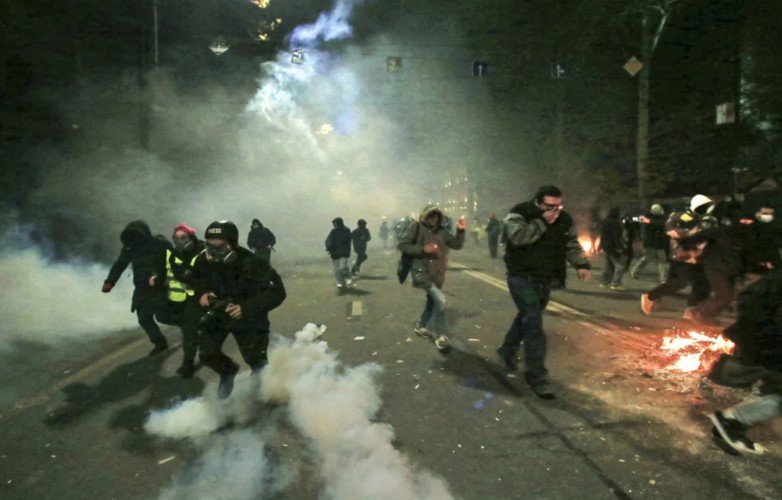Amnesty International has released a damning report on the state of human rights in Georgia, accusing the government of sanctioning widespread violence against protesters and activists. The international human rights watchdog says the Georgian authorities must immediately halt the violence, release detained protesters, and investigate the brutal treatment they faced during demonstrations in Tbilisi and beyond.
The protests erupted in late November 2024, sparked by Prime Minister Irakli Kobakhidze’s announcement that the country would suspend its negotiations with the European Union. What followed was a violent crackdown on citizens exercising their right to protest.
A Violent Response to Peaceful Protests
Amnesty’s report details horrific accounts of police brutality during the wave of protests. Over 300 protesters were detained, with many subjected to what can only be described as torture. The police used excessive force in response to peaceful demonstrations, employing water cannons, tear gas, and rubber bullets. These measures were not limited to the protest zones; officers tracked demonstrators down, raided their homes, and made numerous arrests.

The report highlights the widespread use of violence against those simply voicing opposition to the government’s stance on EU relations. Many of those detained have suffered serious injuries, including bone fractures and head injuries, with over 80 individuals requiring hospitalization. The extent of these injuries suggests that this was not simply an isolated incident, but rather a coordinated and sustained effort to suppress dissent.
Government-sanctioned Violence
One of the most chilling aspects of the report is the implication that the police violence was not only tolerated by the Georgian government but actively encouraged. The brutal treatment of protesters, including the documented beatings of journalists, is seen as evidence of a government-sanctioned crackdown on free speech and peaceful assembly. Amnesty’s findings suggest that the police, emboldened by the apparent impunity granted by the state, have acted with a sense of permission from the government.
This notion of impunity is compounded by the lack of any meaningful judicial oversight. Despite growing evidence of police brutality, Georgian courts have largely ignored complaints of torture, unlawful arrests, and violations of due process. The lack of accountability for such actions only further entrenches the pattern of violence against dissenting voices.
A Growing Wave of Detentions
As the protests expanded, so too did the number of arrests. To date, over 460 people have been detained, with 430 facing administrative charges and 30 subjected to criminal charges. This mass detention reflects the government’s increasing use of the legal system to intimidate, harass, and silence opponents. The report underscores the use of the justice system as a tool of repression, where citizens are punished for simply participating in protests or voicing criticism of government policies.
In addition to physical violence, many individuals have faced administrative penalties, with over 160 fines imposed. These punitive measures serve not only to penalize individuals but to send a broader message to the public: that dissent will not be tolerated.
International Response and Future Implications
Amnesty International’s report has called for a robust response from both the Georgian government and the international community. The organization urges Georgian authorities to immediately cease the use of violence against protesters, free those unjustly detained, and conduct thorough investigations into the actions of the police. Furthermore, the report calls for a real and independent judicial process to hold those responsible for human rights violations accountable.
The situation in Georgia is a stark reminder of the power imbalance that often exists between the state and its citizens. It raises important questions about the future of democratic rights in the country and whether the government can be held accountable for its actions. The international community has a responsibility to stand in solidarity with the people of Georgia and ensure that the rights of citizens to peacefully protest are upheld.
